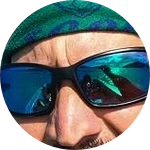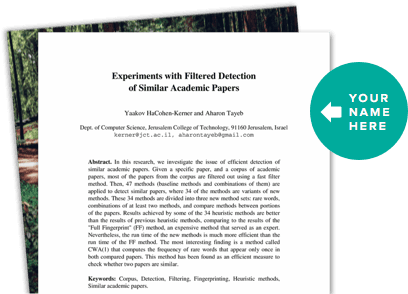About This Project
Terrestrial blood-feeding arthropods (e.g., ticks, mosquitoes) cause human diseases, making them a focus of immune response studies. While fish have been used in immunological research, including treatments for human diseases, no studies exist on their immune response to blood-feeding arthropods. As stem vertebrates, fish offer valuable insights into defense mechanisms and potential treatments for vector-borne diseases.
Ask the Scientists
Join The DiscussionWhat is the context of this research?
Our understanding of host resistance to arthropod (e.g., ticks and mosquitoes) infestation is based exclusively on terrestrial animals. No studies on the immune response of fish to blood-feeding arthropods exist. Additionally, much of what is known about host resistance to blood-feeding arthropods was derived from studies preceding the widespread use of gene expression data. Understanding the mechanisms leading to resistance to blood-feeding arthropods among fishes requires a comprehensive comparison of the immune response from multiple host species. Characterizing the mechanisms driving host resistance can lead to the development of novel vector control strategies and immuno-therapeutics.
What is the significance of this project?
Determining which host genes are most affected by blood-feeding arthropod (BFA) infection can lead to the identification of pathways involved in the fish immune response to BFAs. Characterizing gene expression profiles of infected fish can identify novel protective mechanisms against arthropod infestation not seen among terrestrial hosts. Ultimately, this may lead to new vector control strategies and treatment options for both aquatic and terrestrial vertebrates.
What are the goals of the project?
Our goals are to 1) complete fieldwork in Panama, 2) prepare samples for RNA-sequencing, and 3) characterize the immune response of fish to blood-feeding arthropod infection. Ultimately, by using Pacific and Caribbean fishes of varying susceptibility to infection by gnathiids (the only marine blood-feeding arthropods), we will characterize the gene expression profiles (RNA-sequencing) of mucosal (i.e., fish skin) and systemic (e.g., liver and spleen) immune responses between uninfected and parasitized groups of fish. In doing so, we will identify defense mechanisms used by closely related species (species that diverged following the formation of the Isthmus of Panama), which evolved under drastically different environmental conditions (Eastern Pacific vs. Tropical Caribbean).
Budget
Fieldwork: Parasites and hosts will be collected at two Smithsonian Tropical Research Institute field stations in Panama: One on the Caribbean coast and the other on the Pacific coast. These locations offers a unique opportunity to study evolutionary adaptions of closely related species recently separated by the formation of the Isthmus of Panama.
Lab: RNA will be extracted from immune-related tissues of hosts.
RNA-sequencing: RNA-sequencing will allow us to identify genes involved in the host immune response to parasitism. Ultimately, this may lead to the identification of novel proteins that can be used to treat or prevent vector-borne diseases.
Stipend: This project will require up to six months of full-time dedication from individuals responsible for the collection and processing of samples.
Endorsed by
 Project Timeline
Project Timeline
Fieldwork will be conducted on the Caribbean and Pacific coasts of Panama within the first four months. These sites were chosen due to the occurrence of closely related species which evolved under drastically different environmental conditions. Upon completion of host exposure experiments in the field, we will sequence RNA extracted from host tissues to characterize the immune response. This will provide insight into the evolution of defense mechanisms used by fish in response to parasitism.
Nov 24, 2024
Project Launched
Feb 01, 2025
Fieldwork: Travel to the Pacific coast of Panama
Apr 01, 2025
Fieldwork: Travel to the Caribbean coast of Panama
Jun 01, 2025
Lab work: RNA extraction from immune-related host tissues
Jul 01, 2025
RNA-sequencing
Meet the Team
Gina Hendrick
I recently graduated with my Ph.D. in Marine Biology and Ecology from the Rosenstiel School of Marine, Atmospheric, and Earth Science at the University of Miami. My research focuses on host-parasite interactions on coral reefs. In my previous work, I determined the host range of gnathiid isopods using DNA sequencing and investigated the contributions of parasites to trophic connectivity in coral reef ecosystems. My goal is to create a new model system for studying vector-borne diseases.
Lab Notes
Nothing posted yet.
Project Backers
- 0Backers
- 0%Funded
- $0Total Donations
- $0Average Donation


